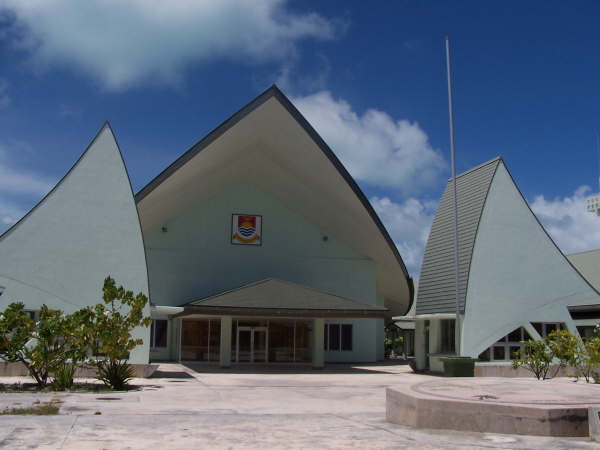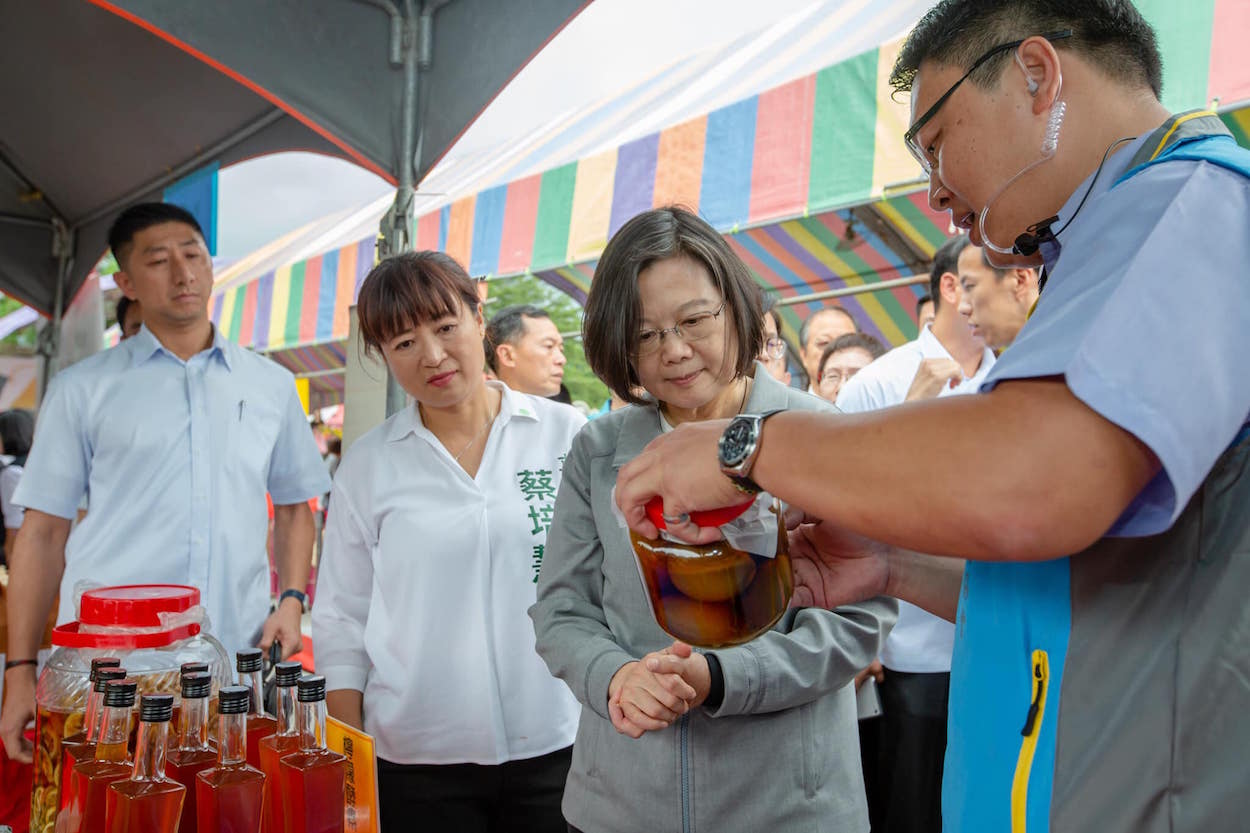by Brian Hioe
語言:
English
Photo Credit: Presidential Office/Public Domain
KIRIBATI BROKE ties with Taiwan in favor of establishing diplomatic relations with China last week, making it the second diplomatic ally to break ties with Taiwan in a week. A few days prior, the Solomon Islands broke ties with Taiwan in favor of China. There were, however, few warnings that Kiribati was considering breaking ties with Taiwan, whereas speculation about whether the Solomon Islands would break ties with Taiwan had gone on for months.
Subsequently, Taiwan has fifteen remaining diplomatic allies, with only three allies in the Pacific region. Kiribati is the sixth country to break ties with Taiwan under the Tsai administration.
 Parliament House of Kiribati. Photo credit: Jopolopy/Flickr/CC
Parliament House of Kiribati. Photo credit: Jopolopy/Flickr/CC
Like the Solomon Islands, which has a population of 600,000, Kiribati is a small island nation many times smaller than Taiwan, with a population of 110,000. Taiwan is much larger than all of its remaining diplomatic allies, both in terms of the size of its population and the size of its economy.
The Solomon Islands and Kiribati occupy waters in which strong regional influences are the United States and Australia. As such, the Solomon Islands and Kiribati de-recognizing Taiwan and switching recognition to China may represent growing Chinese influence in the Pacific. It is thought that both island nations may use closer ties with China as a way to pressure Australia.
That being said, the primary aim of Taiwan maintaining ties with its few remaining diplomatic allies is in order that such allies will speak up for Taiwan in international organizations. In return, Taiwan provides economic aid, infrastructure investment, and educational opportunities. In particular, students from Kiribati and the Solomon Islands currently studying in Taiwan may now be forced to return to their home nations, as is usually the case with students studying in Taiwan from diplomatic allies that switch recognition to China, a means by which such students are caught in the diplomatic crossfire between their home countries and Taiwan.
According to Taiwanese government officials, funding originally allocated to Kiribati will now to go to other Pacific allies of Taiwan. The office of Kiribati’s president, Taneti Maamau, has stated that the decision to switch recognition to China was the result of an internal review process and was made for the national interest.
One notes that, although the Taiwanese government criticizes the Chinese government for engaging in “dollar diplomacy,” in truth, it often engages in much the same behavior. A number of Taiwan’s diplomatic allies are governments with questionable human rights records. Notable examples include Honduras, in which the last election experienced widespread voter fraud, leading to the election victory of Juan Orlando Hernández, and eSwatini, one of the world’s last remaining absolute monarchies and the country with the highest prevalence of HIV among adults in the world.
Losing Kiribati as an ally generally does not stand to affect Taiwan very much, seeing as Kiribati did not play any strategic role for Taiwan beyond occasionally making statements in favor of Taiwan in international organizations. That being said, with Kiribati breaking ties with Taiwan not long after the Solomon Islands, it is highly likely that Taiwan may experience a wave of diplomatic allies breaking ties with it in favor of China in coming months. This could occur with other diplomatic allies of Taiwan in the Pacific or elsewhere.
 Taiwanese president Tsai Ing-wen. Photo credit: Tsai Ing-wen/Facebook
Taiwanese president Tsai Ing-wen. Photo credit: Tsai Ing-wen/Facebook
At the very least, the Marshall Islands has affirmed that it currently has no plans to break ties with Taiwan. But one notes that some in Taiwan’s diplomatic allies are actually wary of closer ties with China. The Solomon Islands actually saw protest on the island of Malaita against the decision by the Sogavare administration, with the claim that the public was not consulted in this process. The Central Bank of the Solomon Islands had also publicly warned of the dangers of incurring debt to China and falling into a debt trap.
Some speculation in the Taiwanese media has posed the possibility that the Chinese government has made it a goal to ensure that Taiwan has no remaining diplomatic allies by the time of presidential elections in January of next year. That is, despite being strategically unimportant, Taiwan’s diplomatic allies occupy a special place of pride in ROC nationalism and the Chinese government may be leveraging on this as a way to attack the Tsai administration, giving the KMT ammunition with which to attack Tsai and her government. If so, the Chinese government would be seeking to engender the perception that the KMT is the only political party in Taiwan capable of maintaining stable cross-strait relations, whereas a DPP administration would immediately invite reprisals from China.
That being said, one notes that China’s poaching of diplomatic allies is sometimes enraging of the Taiwanese public, which is aware that Taiwan maintains its diplomatic allies as a remnant of ROC institutions and is also aware that Taiwan’s loss of diplomatic allies does not stand to affect Taiwanese society in any truly substantive way. Instead, China simply demonstrates its international bullying of Taiwan yet again.

